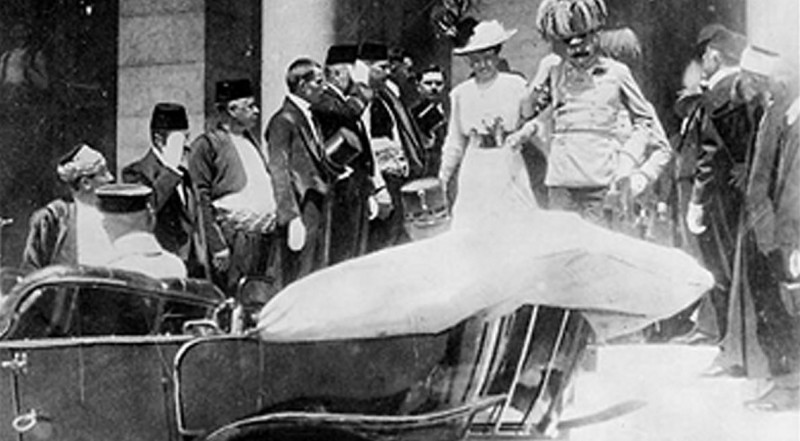
Introduction
The assassination of Archduke Franz Ferdinand in 1914 was a pivotal event that triggered the start of World War I. This tragic incident, which took place in Sarajevo, Bosnia, had far-reaching consequences that changed the course of history. In this article, we will delve into the details of the assassination, its causes, and the aftermath that led to the outbreak of the First World War.
The Life of Archduke Franz Ferdinand
Archduke Franz Ferdinand was born on December 18, 1863, in Graz, Austria. As the heir to the Austro-Hungarian Empire, he led a privileged life but was also exposed to the challenges and complexities of ruling a vast empire. Franz Ferdinand was known for his progressive views and desire for political reforms within the empire. His marriage to Sophie, Duchess of Hohenberg, a woman of non-royal birth, caused controversy but also showcased his independent mindset.
Rising Tensions in Europe
In the early 20th century, Europe was a hotbed of political rivalries, nationalism, and territorial disputes. The major powers, including Austria-Hungary, Germany, Russia, and France, were engaged in an arms race, each trying to outdo the other. The assassination of Archduke Franz Ferdinand became the spark that set off the powder keg of these tensions.
The Assassination Plot
The assassination plot against Archduke Franz Ferdinand was orchestrated by a group of Bosnian Serb nationalists known as the Black Hand. Their objective was to free Bosnia from Austro-Hungarian rule and unite it with Serbia. Gavrilo Princip, a member of the Black Hand, was chosen to carry out the mission. On June 28, 1914, Princip seized the opportunity when the Archduke's motorcade made a wrong turn near the Latin Bridge in Sarajevo.
The Fateful Day: June 28, 1914
As Archduke Franz Ferdinand and his wife, Sophie, traveled in an open car, Gavrilo Princip fired two shots, fatally hitting both of them. The news of their assassination shocked the world and set in motion a series of events that would lead to the outbreak of World War I. Austria-Hungary saw this act as a direct threat and issued an ultimatum to Serbia, demanding retribution.
Aftermath and Impact
The assassination of Archduke Franz Ferdinand ignited a chain reaction of alliances, military mobilizations, and declarations of war. Austria-Hungary's ultimatum to Serbia led to a diplomatic standoff, which eventually spiraled into a full-scale war. The assassination served as a catalyst for the existing tensions in Europe, causing countries to align with either the Central Powers (Germany, Austria-Hungary) or the Allied Powers (France, Russia, and later, Britain).
The ensuing war lasted for four years, resulting in immense human suffering and the reshaping of the global political landscape. Millions of lives were lost, and entire generations were forever scarred by the horrors of trench warfare and new weapons of mass destruction.
Conclusion
The assassination of Archduke Franz Ferdinand in 1914 was the spark that ignited the flames of World War I. This tragic event, orchestrated by Bosnian Serb nationalists, unleashed a wave of destruction and changed the course of history. The war that followed reshaped the world and set the stage for future conflicts. The impact of the assassination and the subsequent war cannot be underestimated, as it marked a turning point in the geopolitical landscape of the 20th century.
Manipur Violence: Tribal Leader Forum Regrets Kuki Zo Conflict